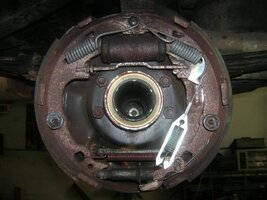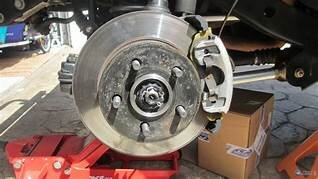When I worked at Virg's Brake and Suspension in Mount Vernon, Washington, I was taught that the front brakes did 70% of the work (the bias was toward the front brakes), and that disc brakes were a far superior braking system to drums. Disc brakes are a "zero clearance" brake, in that they have the slightest drag against the rotors, which is a good (great) thing when dealing with wet weather. They are constantly clearing the rotors of the water, whereas drum brakes retract the shoes more (allowing far more clearance), and the water can, in extreme cases, even pool in the bottom of the drums. Also, drum brakes, by their very design, retain heat, allowing for brake fade much quicker than rotors (especially vented rotors). I was told that we would likely be seeing more cars going to 4-wheel discs in the near future (this was told to me in '81). Well, that is exactly what has happened. The upper end models of most brands have made the switch to 4-wheel discs. The lower end models frequently retain the drum brakes in the rear. Now, maybe for off-roading applications, you'll not notice much difference between discs and drums (in the rear), especially in dry areas. But for those of us who do far more driving on pavement than rocks, I'd argue that a 4-wheel disc set-up is the superior brake system.



